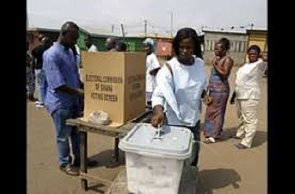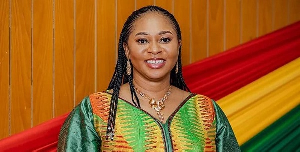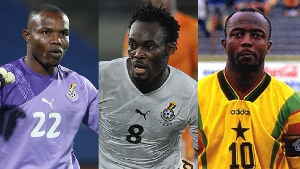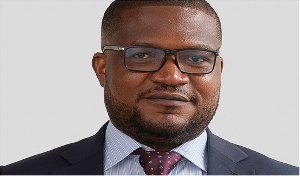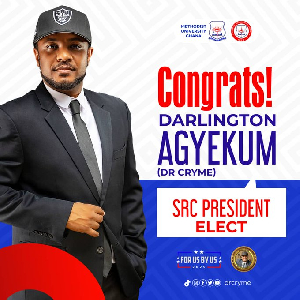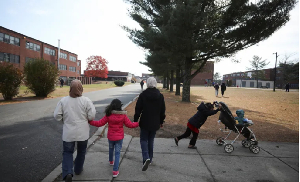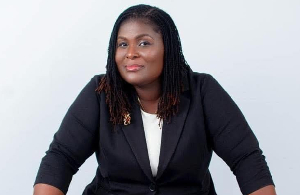One of the main reasons that many teaming and party members angrily vote for any party within an eight-year cycle is that delegates in our communities do not account for the party members, stakeholders, and youth camps in our communities.
This is something I have noticed since birth. It looks like monkeys are working while baaboo dey chop.
In the first place, what is the full meaning of a DELEGATE or DELEGATES? A DELEGATE/DELEGATES is a person or group of people sent, authorized to represent in the interest of others, in particular, an elected representative sent to a conference. Alternatively, "delegates" refers primarily to those with whom the community has entrusted someone, usually someone less senior than the delegate; nevertheless, this may not always be the case in urban areas.
Do these folks actually know what they are doing? Do they truly speak for the interests of our Party or just their own self-interest when representing the communities? We are losing more popular votes in our bases for this reason, among other reasons, since they seem to be overlooked when delegates are being provided with T and T, and no one is ready to make a sacrifice for the other.
To make the party appealing and to strongly convey to our opponents that our party is inclusive, supports equal opportunity, and, above all, has a comprehensive strategy for community development, delegates often decline to answer questions or make community contributions.
Our individuals have an attitude that asserts that once you cut without me, you can accomplish the task on your own or without anybody's assistance.
A clear indication to any party that typically plans to extend the eight-year cycle is the constant anger directed towards our delegates by some party members and stakeholders.
Even though this is a generation where everyone looks out for themselves and God takes care of everyone else, according to my calculations and understanding of the party, delegates should have an account signatory to the chairman, secretary, treasurer, and one of our community stakeholders who is a party member.
If any good Samaritan (aspiring candidate) donates any items or products at the rural level, they can sit down and RE-STRATEGISE on how to distribute the items for the party's benefit, even though the delegates may have a larger share. This will foster unity, encourage our young people to work together and encourage others to participate fully when the time comes.
To put it another way, there should be a meeting held once a year or every six months to inform party members and stakeholders on the status of the negotiations, who the delegates met with, and how to energize our base by highlighting our strengths and weaknesses.
In unison, sharing what little we have, mobilizing people, and taking positions to defend, the party will appeal to a large number of people and our popular vote share will gradually rise. In all honesty, everyone needs to be prepared to work; if not, our NATIONAL YOUTH ORGANIZER will have a lot of work ahead of him, including all regional youth, constituency youth, and Tesconians.
Below are some suggestions I think the constituency executives should educate the delegates:
With all due respect, I believe that each constituency ought to be prepared to voluntarily host WORKSHOPS OR SEMINARS in order to sensitize the delegates on how to conduct, operate, and give back to our communities to present a unified face.
Thirty percent of T and T should go to our vulnerable, and the remaining seventy percent should go to our delegates.
Thirty percent of the T and T can be used to build urinal pits for schools and clinics, purchase a few mathematical sets for our basic schools, pay for a few school fees, build a summer camp for youth, activate community games, purchase a few cylinders or kettles to energize our bases, provide start-up capital for some widows, purchase spraying machines for farmers who are unable to do so, purchase phones to support party activities, and most importantly, provide social gathering support at the community level when someone is in need.
Even if it might not reach everyone, a lot of people will feel engaged. By working steadily and methodically, we can accomplish more in a shorter amount of time than anticipated. A large number of community members will be eager to take part since they might have personally benefited in one way or another.
In light of this, I anticipate that delegates will inform one another that it is not appropriate to display T and T on national television and to make needless remarks; rather, they should emphasize that they were chosen to represent their communities to help boost popular vote, answer to their constituents, and always be prepared to make changes when the community so requests.
Please don't take offense at my observation; democracy must exist.
Finally, I think most people will agree with me because, if we don't patch things up quickly, the bulk of our people—who live mostly in rural areas—struggle because they have no one to turn to and often feel abandoned.
I predict that 2024 will be the most difficult election ever. This year's election will essentially be local to persuade the majority; otherwise, it would come as a shock. Those who are fortunate enough should practise charity, find ways to interact with the people in our rural areas, and most importantly, listen to their problems since that is where appropriate economics and research should start.
Opinions of Monday, 11 December 2023
Columnist: Adams Mujeeb

